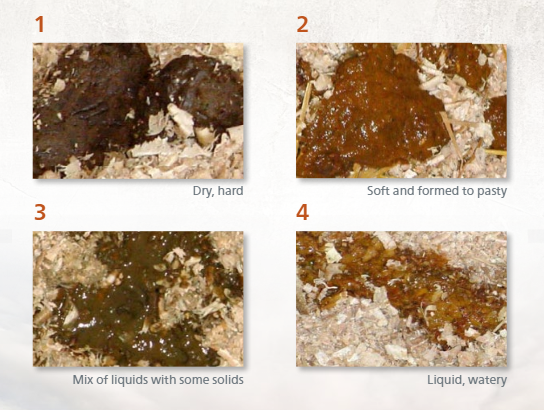Calf Scours
 What is calf scours?
What is calf scours?
Calf scours, characterized by diarrhea, is responsible for causing more financial losses to cow-calf producers than any other health-related issue. Scouring calves often develop dehydration and metabolic acidosis, as well as electrolyte and energy imbalances. In addition, this condition often contributes to poor growth and increased labor and costs.
Signs of scours in beef calves
- Watery stool
- Loss of appetite
- Weak suckling reflex
- Dehydration (sunken eyes)
- Abnormal breathing
- Difficulty standing
Fecal scoring guide
A fecal scoring guide can help you to monitor the overall health of your herd. If calves have a fecal score of greater than 2.5 for more than five days, they are unhealthy and require attention. Ideally, no more than 2 to 3% of calves should be presenting with watery, loose stools at any given time.

Causes of scours in beef calves
Scours is commonly caused by exposure to pathogens, including:
- Bacteria such as E. coli or Salmonella
- Viruses such as rotavirus or coronavirus
- Protozoan parasites such as Cryptosporidia or Coccidia
Stress can also play a significant role in how these organisms will affect calves. Therefore, it is imperative to manage your herd in order to minimize risk. For example, try to keep calving areas as clean as possible to reduce pathogen exposure. If possible, isolate sick calves and their dams from others in order to prevent the spread of pathogens.
Beef calf scours prevention
- Provide sanitary calving facilities
- Feed colostrum
- Sanitize feeding equipment
- Control vectors that can spread disease













